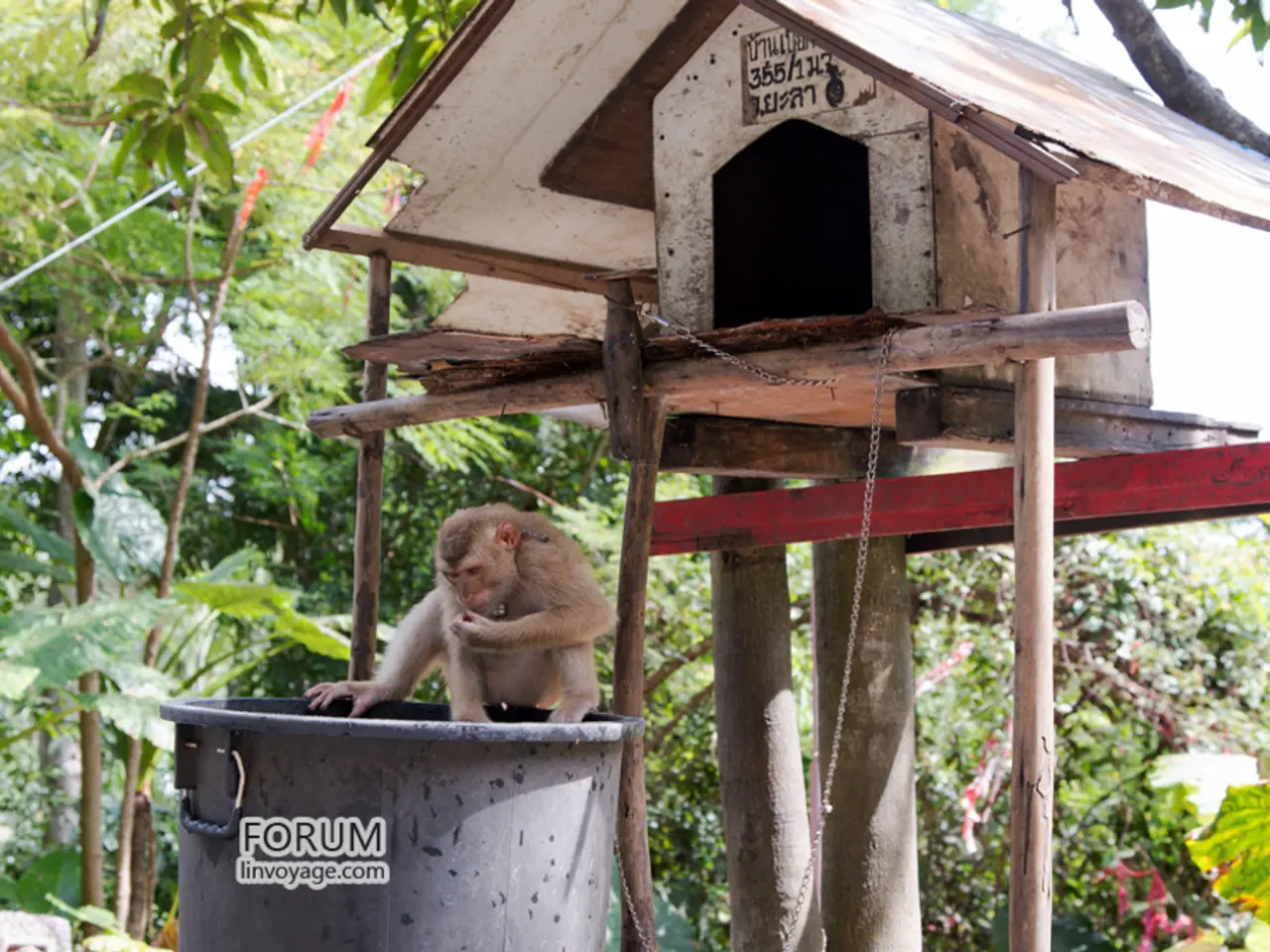Rare birth of a drill monkey at Fota Wildlife Park
Fota Wildlife Park Welcomes Rare Drill Monkey, Launches Public Naming Contest
Fota Wildlife Park in Cork, Ireland, is making headlines with the birth of a rare drill monkey, the first of its species to be born at the facility as part of the European Endangered Breeding Programme (EEP) [1][2][4]. The newborn male monkey is nursing well, and his mother, nine-year-old Lewa, is doing an excellent job in caring for her first baby [2].
The drill monkey's father is ten-year-old Ekona. Banni, a younger female drill monkey, is both curious and attentive towards the new arrival [2]. To celebrate this momentous occasion, the park is asking for the public's help in naming the new drill monkey [1]. Suggestions can be made on the park's website.
Drill monkeys, closely related to mandrills, are a rare primate species native to limited areas in Nigeria, Cameroon, and Bioko Island in Equatorial Guinea. Over the past 30 years, their population has declined by at least 50% mainly due to habitat loss from development and plantations [1][2]. The EEP supports conservation by managing captive populations to help ensure the species' survival and potentially support future reintroductions.
Fota Wildlife Park's program includes careful maternal care and monitoring of infant drills, as well as social learning among the group members to enhance future breeding success [2]. The EEP helps coordinate breeding and genetic management across European zoos and conservation parks to sustain viable populations.
The EEP is a key structured effort in conserving drill monkeys by maintaining healthy captive populations to help counteract wild declines and support long-term species survival. The estimated wild population of drill monkeys is between 3,000 and 4,000. Fota Wildlife Park is hopeful that Banni may give birth herself later this year [1].
In addition to conservation efforts, the park also engages the public by involving them in initiatives such as naming the newborn drills to raise awareness [2]. The birth of the drill monkey at Fota Wildlife Park underscores the importance of such efforts in protecting endangered species and their habitats.
Conservation Efforts:
- European Endangered Breeding Programme (EEP): Captive breeding and genetic management across Europe.
- Habitat protection in wild: Focus on limited native range in Nigeria, Cameroon, Bioko Island; counter habitat loss.
- Public engagement: Zoo initiatives such as naming the newborn drills to raise awareness.
[1] Fota Wildlife Park Press Release, 2025. [2] Fota Wildlife Park Website, 2025. [4] European Endangered Breeding Programme Website, 2025.
With the launch of a public naming contest for the newborn drill monkey at Fota Wildlife Park, consider submitting your suggested name for this rare species, blending seamlessly with the park's existing home-and-garden and lifestyle initiatives. As conservation efforts advance for this endangered species, your engagement in naming the drill monkey supports not only Fota's mission but also fosters a broader understanding of lifestyle choices that include the protection of rare pets like the drill monkey.




